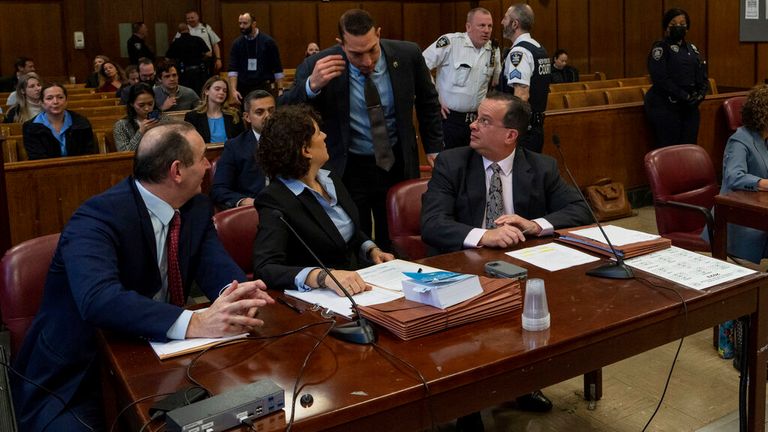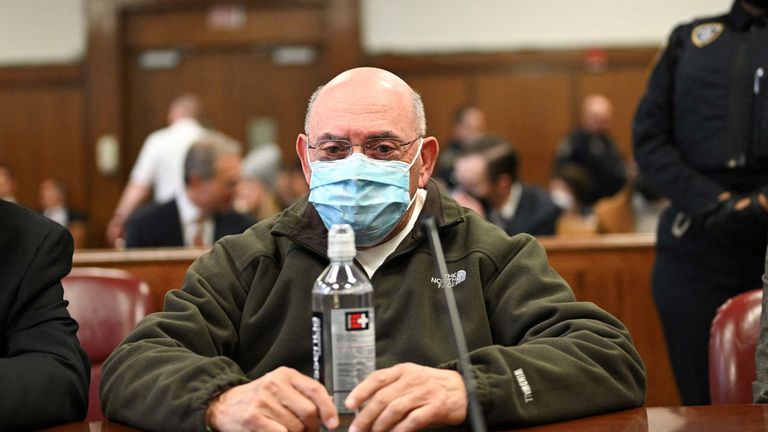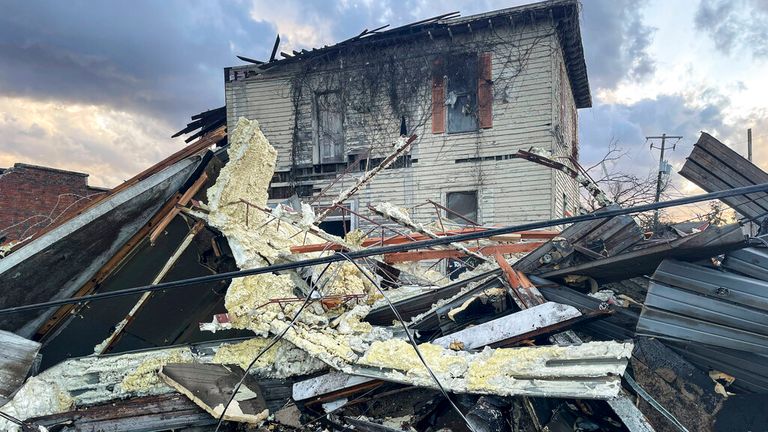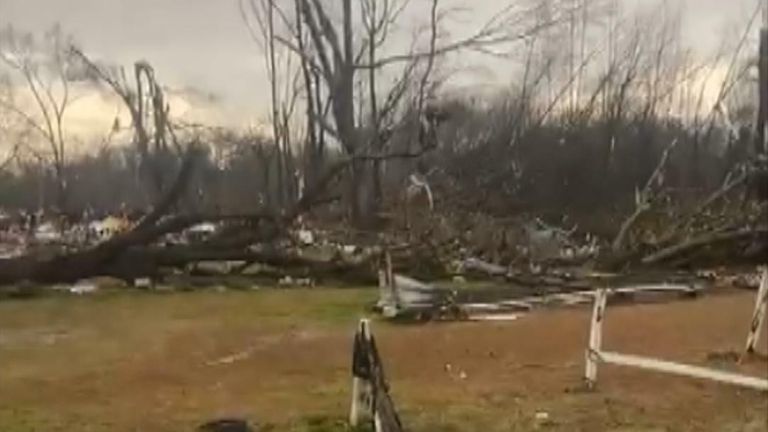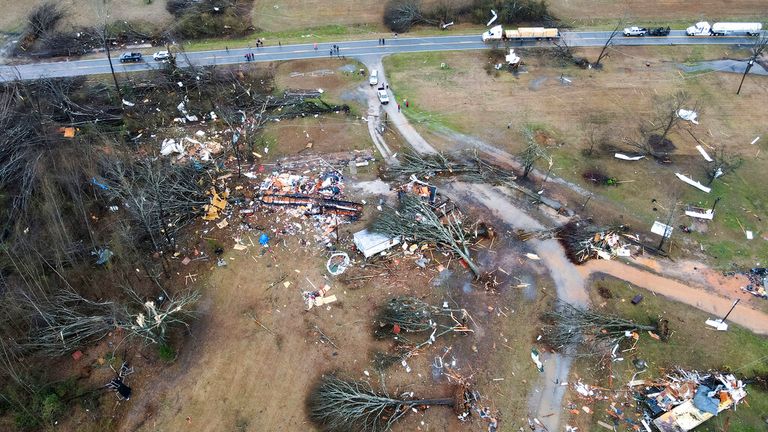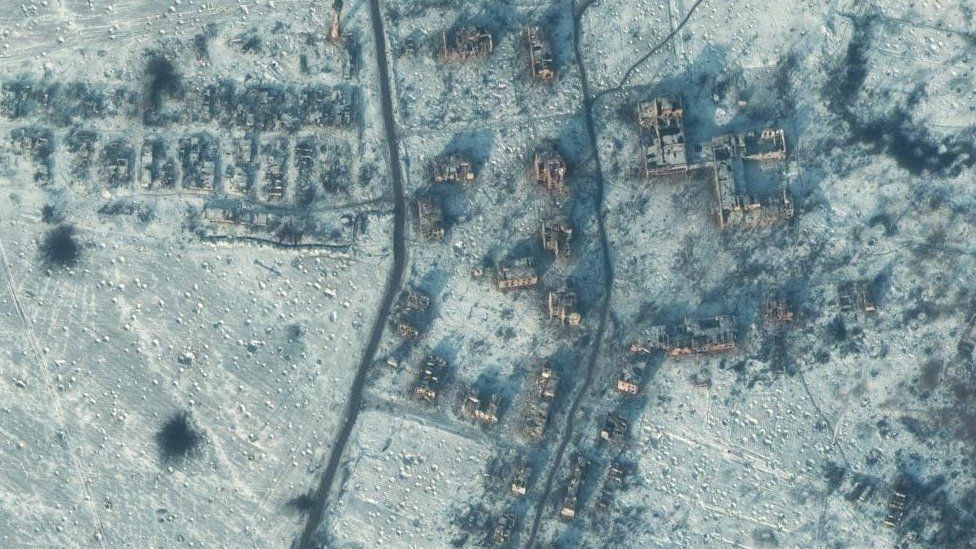
Russia's military says it has captured the Ukrainian salt-mine town of Soledar after a long battle, calling it an "important" step for its offensive.
The victory would allow Russian troops to push on to the nearby city of Bakhmut, and cut off the Ukrainian forces there, a spokesman said.
This was a very confident and ambitious statement from Moscow.
But Ukrainian officials said the fight for Soledar was still going on and accused Russia of "information noise".
The battle for Soledar has been one of the bloodiest of the war.
The town is relatively small, with a pre-war population of just 10,000, and its strategic significance is debatable. But if it is confirmed that Russian forces have seized control of it, then there will likely be a big sigh of relief in the Kremlin.
Divisions have emerged between regular Russian forces and the notorious Russian Wagner paramilitary group throughout the battle, with a jealous turf-war developing over who should take credit for the advance.
Barely any walls in Soledar remain standing, Ukraine's President Volodymyr Zelensky said this week. Describing almost apocalyptic scenes, he spoke of the nearby terrain as scarred by missile strikes and littered with Russian corpses.
Speaking during his nightly address from Kyiv on Friday, Mr Zelensky said the battle in the region continued to rage, but avoided any reference to Russia's claims of control over Soledar.
"Although the enemy has concentrated its greatest forces in this direction, our troops - the Armed Forces of Ukraine, all defence and security forces - are defending the state," the Ukrainian leader said.
His chief of staff, Andriy Yermak, compared the fight for Soledar and Bakhmut to one of the bitterest battles of World War One, at Verdun.
Regional governor Pavlo Kyrylenko said on Thursday that 559 civilians including 15 children remained in Soledar and could not be moved out.
The town's significance for the Russian military is disputed by military analysts because of its relatively small size. The US-based think tank Institute for the Study of War said while it was likely that Russian forces had captured Soledar, it did not believe they would then be able to go on to encircle Bakhmut.
Nevertheless, if it becomes clear that Russia has taken it, then that will be seen in Moscow as progress - even a victory.
That is exactly what President Vladimir Putin needs as Russia has failed to capture a single town in Ukraine since July 2022. Since then, Moscow's forces have suffered a whole series of embarrassing defeats.
Ukraine's successful counter-attack pushed Russia almost completely out of Kharkiv region in the north-east. In October, Russia's Kerch bridge came under attack, with Russian forces retreating from the city of Kherson the following month.
The southern port city had been the only regional capital that Russia had managed to seize since the invasion began.
Capturing Soledar would be something for Moscow to present as some "good news" to the Russian people and the troops on the wintry front line.
But Serhiy Cherevatyi, spokesperson for Ukraine's eastern military command, denied Soledar was in Russian hands: "We won't give any more details as we do not want to reveal the tactical positions of our fighters."
Deputy Defence Minister, Hanna Malyar, said fighting had been "hot in Soledar overnight". Ukrainian fighters were "bravely trying to hold the defence", she added, in what was a difficult stage of the war.
Western and Ukrainian officials have said much of the fighting in Soledar and Bakhmut is being done by the notoriously brutal Wagner mercenary group.
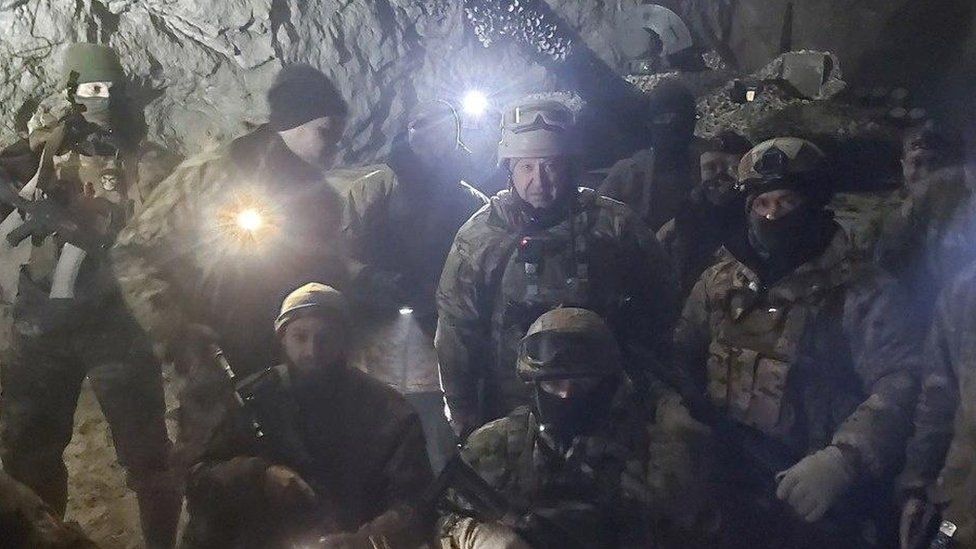
Its leader, 61-year-old Yevgeny Prigozhin, has claimed repeatedly over the past few days that his forces are the only units on the ground in Soledar. He said on Tuesday night that his mercenaries had seized the town, only to be contradicted by Russia's defence ministry the next morning.
Daily updates from the Russian defence ministry have made no mention whatsoever of Wagner, and Friday's briefing was no exception. The military said that paratroopers had played a key part in the capture of the town.
Mr Prigozhin then released a statement saying he was "surprised" to read the defence ministry briefing. There "wasn't a single paratrooper" in Soledar, he insisted, warning against "insulting [his] fighters" and "stealing others' achievements".
And on Friday evening, Mr Prigozhin accused "officials who want to stay in their places" of being the biggest threat to his group's advance in Ukraine.
In a later statement, the defence ministry praised the mercenaries' "courageous and selfless actions" during the fighting, but again emphasised the leading role of regular Russian forces.
Analysts have long spoken of tensions between the military and Mr Prigozhin's Wagner group. The Russian oligarch has publicly criticised senior military leaders, including Gen Valery Gerasimov, appointed two days ago as overall commander of Russian forces in Ukraine.
While Russia has mobilised some 300,000 reservists for the war since the end of September, Prigozhin has looked to recruit extra numbers from Russia's prisons.
Andriy Yermak told French daily Le Monde that Russian criminals had been sent straight to their deaths on the front line: "Soledar is a scene of street battles, with neither side really in control of the town."
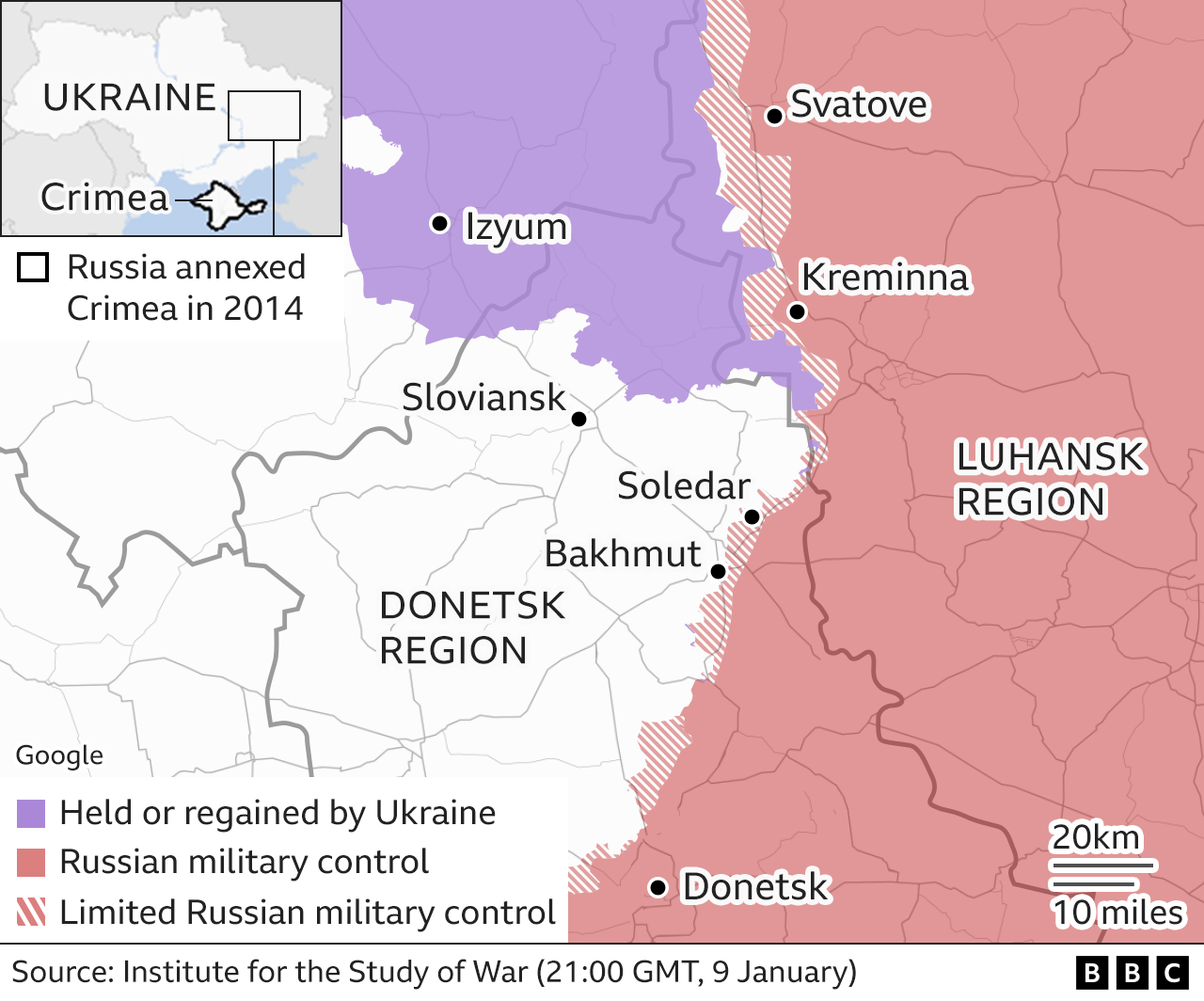

https://news.google.com/__i/rss/rd/articles/CBMiMGh0dHBzOi8vd3d3LmJiYy5jby51ay9uZXdzL3dvcmxkLWV1cm9wZS02NDI2MzExOdIBNGh0dHBzOi8vd3d3LmJiYy5jby51ay9uZXdzL3dvcmxkLWV1cm9wZS02NDI2MzExOS5hbXA?oc=5
2023-01-13 21:43:59Z
1733763175
/cloudfront-us-east-2.images.arcpublishing.com/reuters/JGNT6ZJ72VLUXJUF6A23WEALBA.jpg)
